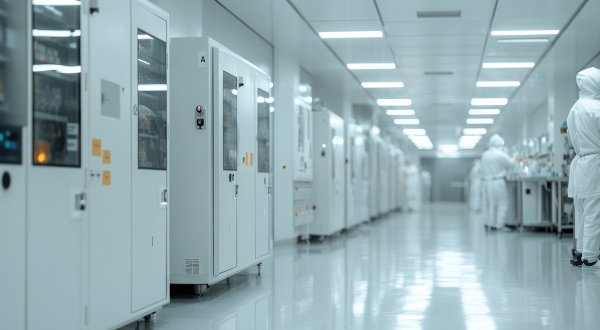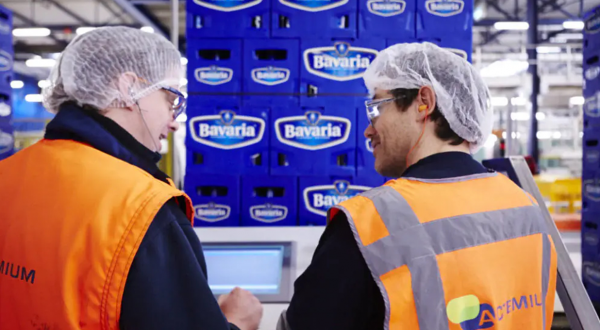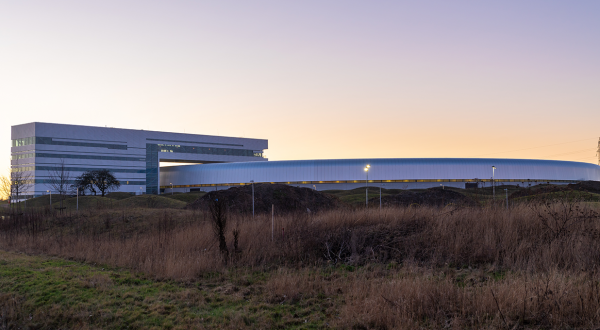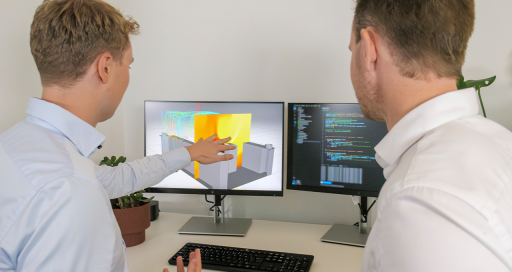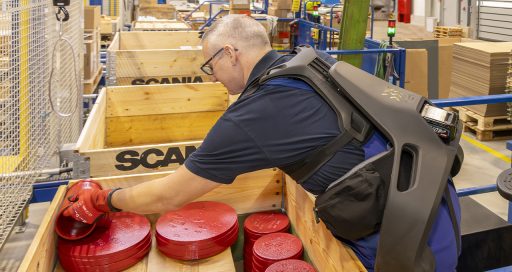Three examples of innovation in industrial process optimisation
Reading time: 7 min
Manufacturers such as Mars, Danone and Karlsberg presented innovative process optimisation programmes at the most recent Actemium Feed, Food and Beverage Days.
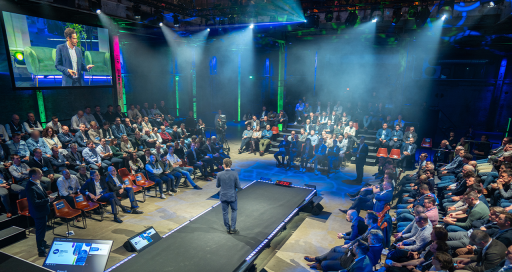
For the third year running, Actemium has organised an event dedicated to the latest industrial innovations in a particular business segment. Having previously showcased car manufacturing, onshore power supply (OPS) and robotics, the event held on 29th and 30th January 2025 in Amsterdam was focused on the Feed, Food and Beverage (FFB) sector. For the occasion, the VINCI Energies industry brand took over The Sugar Factory, a former factory for transforming beets into sugar.
“The Feed, Food and Beverage market is the largest segment for Actemium, representing over 10% of its €4 billion in revenue,” says Antoine Béron, Brand Business Support & Development Director at Actemium and moderator of the event, adding that: “These sector-specific and themed events bring business units from the Actemium network together, in the case of the FFB Days, with ones already in agribusiness and others interested in diversifying into it.”
The principle of this event is to offer plenary sessions and an expo zone (The Village) showcasing selected solutions, machinery and demonstrators developed for the sector by different Actemium business units. In Amsterdam for the Feed, Food and Beverage Days, some 30 stands exhibited some of the latest creations and innovations in electrical engineering, command-and-control, robotics and piping. “To facilitate interactions between the participants, we implemented a dedicated application enabling them to arrange meetings with other experts,” says Antoine Béron. But over the two days, it was the four plenary sessions that provided the real highlights of the show.
“Smart, Seamless, Touchless” – the Mars recipe
The contribution from Mars showed how effectively a company can mobilise to accelerate its digital transformation. “Mars Inc. did this by focusing on the three key concepts of Smart, Seamless and Touchless,” explains Stephen Goodman, Digital Plan Transformation Lead at Mars Wrigley. “These are: decisions based on a digital twin and on dynamic analysis, AI and machine learning (Smart); fully connected factories integrated into our end-to-end collaboration system (Seamless); and greater efficiency thanks to advanced automation and intelligent operations (Touchless).”
He recognises that there were plenty of challenges, including “The difficulty of coordinating tasks between multiple operational units; the lack of skilled people, especially data scientists; our cybersecurity concerns in collaborating with third-party providers; and the absence of a clear profitability analysis to justify investment in computing architecture; not to mention the difficulties in accessing and integrating data”.
But the positive impact on production was considerable, with an increase in capacities, a reduction in quality costs, reduced dependence on labour, and energy savings.
An energy paradigm shift at Alpro
Another account to grab the attention of FFB Days attendees was that from Dominique Hamerlinck, Divisional Energy and Utility Manager at Alpro (Danone) on the change process for energy production at their plant in Wevelgem, Belgium, Danone’s largest production site for plant-based products.
“Feed, Food and Beverage is Actemium’s largest sector”
He explains that “This is a profound energy paradigm shift, in line with our ‘Trias Energetica+’ vision for thermal integration, electrification, local renewable energy production, and reduced demand, in order to move away from a conventional model based on rigid energy demand to a system capable of adapting to intermittent, primarily renewable, energy production.”
The production site has implemented practical tools for this transformation: electrification (a 1,265 kW heat pump and a 4 MW hybrid boiler); an intelligent hot water network combining different heat sources; automated management of consumption and production methods to ensure smooth management of flexibility; and the optimisation of energy assets through the electricity markets.
“This innovative energy model allows us not only to incorporate renewable energies more effectively, but also to optimise costs, stabilise the public network and make the factory more resilient to fluctuations and outages,” concludes Dominique Hamerlinck, though he recognises that “this also poses challenges in terms of technical complexity, risk management, predictability and market knowledge.”
Scheduling to save water at the Licorne Brewery
In the area of water savings, the Brasserie La Licorne (Karlsberg) was able to demonstrate the answers technology can provide in the face of dwindling resources, legal obligations (French drought decree) and increasing costs.
Since 2020, this brewery in Alsace has been pursuing an ambitious plan to reduce its water consumption. It began by applying targeted technical enhancements: removal of the cooling tower, replacement of the existing vacuum pump with a water-free dry vacuum pump, and optimisation of the tunnel pasteurisers using software-based adjustment.
“This first phase enabled us to immediately save 41,000 cubic metres of water a year,” says Fabrice Schnell, Technical Director of Brasserie La Licorne. “After that, we carried out a second phase in 2021, with the installation of an osmosis system on the boiler to avoid the sluicing of mineralised water, then a third phase in 2023, with the installation of green infrastructure (rainwater infiltration basins, draining surfaces in car parks, etc.) and a fourth phase in 2024 focused on more in-depth actions such as effluent treatment and the installation of an adiabatic cooling system that will save an additional 40,000 cubic metres.”
But the brewery has no intention of stopping there – there are plans to reuse the water from rinsing and sterilisation in applications such as lubrication and pre-cleaning, and to optimise the use of water in centrifugation, with a reduction target of 70%.
A key market for Actemium
The Actemium Feed, Food and Beverage Days were brought to a close by Vincent Bouffard, Chairman of Actemium and General Secretary of VINCI Energies, who reiterated the priority status of the FFB sector for the network. Combining high expectations from end consumers, stringent manufacturer requirements and a constant need for innovation, especially in terms of reducing its environmental footprint, the agribusiness market remains one of the most dynamic in which Actemium operates.
“Excellence is the watchword, which suits us perfectly,” he assured the audience. “In this uncertain world, I am certain of one thing, which is that for as long as we maintain our energy and hold to our values, we have every reason to be optimistic for the future.” The success of the Amsterdam event is ample encouragement for the VINCI Energies industry Brand to repeat the experience.
AI’s role in industry
For Bruno Daunay, AI Program Lead at Leonard, the VINCI Group’s future-oriented innovation platform, “There are four essential elements for a successful AI implementation: the people, the procedural knowledge, the data and the infrastructure – all things the VINCI Group has already! Artificial intelligence is absolutely not magical, or new. It’s simply a matter of implementing our knowledge as an algorithm. The goal of AI technology is not to revolutionise everything, but to accelerate processes we are already using.”
09/15/2025
